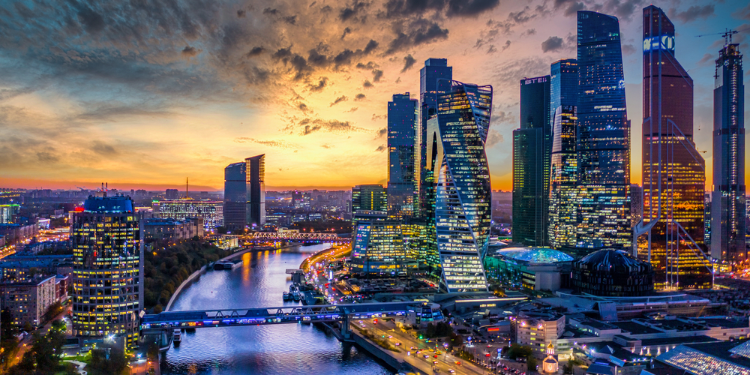
On Wednesday, March 15, the Russian Ministry of Internal Affairs announced a large-scale recruitment campaign for foreign computer scientists and other technology specialists. For successful candidates, there are promises of easier immigration procedures, a stay without a fixed end period, and the possibility of bringing one's whole family. Yet, behind this semblance of openness lies the reality that has caught up with Russia since it declared war on Ukraine. Here's an analysis of the situation.
Immigration in Russia made easier for foreign Tech talent
On Wednesday, March 15, Irina Volk, the official representative of the Russian Ministry of Internal Affairs, unveiled a series of measures meant to attract foreign professionals who are experts in new technologies. "The procedure for employment and obtaining a residence permit in the Russian Federation has been simplified for foreign citizens specializing in the field of information technology", she said.
Simplification seems to be the new motto of this recruitment campaign, which comprises several benefits for foreign talents. In short, all the procedures for entering the country and obtaining a residence permit will be fast-tracked. Moreover, family members, including spouse, children, children's spouses, parents' spouses, grandparents and grandchildren, will be able to accompany the foreign professional to Russia. They, too, will benefit from a simplified procedure, with a residence permit for an indefinite period.
However, eligible foreign talents will only be applying to some companies. Russian authorities are the only ones to accredit the IT companies for which foreigners can work. To apply for a job, foreign candidates must have an employment or civil contract with an IT company approved by the Russian authorities and provide proof of IT qualifications (diplomas, certificates, etc.). They will also need to present documents confirming their relationship with the family members who will be accompanying them. Thereafter, they will need to contact the immigration authorities of the place of permanent residence. The Russian Federation will consider the application for a residence permit within 3 months.
Brain drain is shaking the Russian labor market and economy
Why is Russia embarking on such an international recruitment spree? At the end of December 2022, Maksut Shadayev, Minister of Digital Development, declared that Russia had lost up to 10% of its IT experts, which represented, at that time, some 100,000 IT specialists. Back then, the minister tried to be reassuring, saying that 80% of the professionals who left the country would still be remotely working with Russia. Two months earlier, the Russian Federation estimated the number of Russian tech companies that had relocated to Kazakhstan at 300. But for them, there was no question of a brain drain or exodus. However, the Kremlin could not explain these departures. Conversely, those who left say they did so because of the Russian invasion of Ukraine. How accurate are these figures?
In May 2022, the Russian Association of Electronic Communications estimated that 50,000 to 70,000 specialists in new technologies had left the country. It predicted 100,000 more departures the following month. These figures were sent to the Russian parliament. According to other sources, the number of Russians who left between the end of February and May 2022 was nearly 300,000, at least half of whom were IT (information technology) experts.
Beyond the battle of numbers, the massive outflow of IT specialists and the recruitment campaign launched by Russia are indicative of the scale of the problem. IT experts have no trouble finding work elsewhere; their talents are in demand everywhere, and the need for foreign talent is ever-rising worldwide. These experts are more concerned about a Russian economic market that is being increasingly isolated from the rest of the world, about an authoritarian regime and a country where it is no longer possible to grow professionally and socially.
What are the implications for working in Russia?
Both the stick and the carrot seem to be part of the Russian strategy by which incentives and sanctions are intended to welcome new international talent while maintaining pressure on its workforce. But for what outcome?
Forcing Russian experts to return home?
In December 2022, Maksut Shadaev recommended not punishing IT remote workers so as not to aggravate the brain drain and the resignations to foreign companies. However, the tone changed in January 2023, and the Russian government has since considered a law to ban remote working for certain professions, including IT. It is unthinkable for the Kremlin to see its experts collaborate with the "enemy" (NATO countries) and disclose potentially sensitive information. Vyacheslav Volodin, president of the lower house of the Russian parliament, is considering other sanctions like more severe taxation of Russian expatriate workers.
High wages and nationality for foreigners joining the labor market
The Russian strategy is not a new one. Although the country is now opening its doors to foreign IT professionals, since its offensive against Ukraine, it has multiplied the recruitment campaigns to attract foreigners, especially in the army. Since mid-May, the Russian Ministry of Defense has published 20,000 job offers on Superjob, one of the country's largest job websites. In addition to a much higher than average monthly salary (up to 200,000 rubles/ about 2,400 euros - the salary of contract soldiers mobilized in Ukraine), the Russian authorities promise more straightforward access to Russian nationality for foreigners who sign up for at least one year. The announcement was made in September 2022. At the same time, the Kremlin voted for sanctions for Russians refusing to fight (up to 10 years in prison for desertion, disobedience, surrender, or refusal to fight).
A burden on the Russian economy
Has the Russian economy collapsed? This is what foreign leaders were planning when they launched their waves of economic and diplomatic sanctions, which were thought to “massively impact the Russian economy and its political elite", as Ursula Von der Leyen, President of the European Commission, did put it. Bruno Lemaire, French Minister of the Economy, even presaged the "collapse" of the Russian economy.
But the country is holding on. In January 2023, the IMF announced that the recession in Russia would be limited to -2.2%, far from the -8.2% expected at the start of the war. Russia, which has also learned from the sanctions that resulted after its annexation of Crimea in 2014, is resisting thanks to oil. The IMF even predicts a 2.3% increase in Russian GDP in 2024.
Does this mean that everything is fine for Russia? Well, as we speak, Russia is putting forward figures that are higher than those estimated by the IMF and other international organizations. However, the latters remind us that figures are an effective weapon for the Kremlin, hence the controversies concerning the departure of Russian IT professionals. In 2022, the Russian authorities decided to stop publishing statistics (concerning their foreign trade). Although the Russian economy has not collapsed, it has definitely been affected. The country is struggling to finance the war and is calling on its few foreign supporters.
The shortage of IT experts indicates a much deeper crisis in the world of work. In Moscow alone, there is a shortage of about 400,000 specialists in the industrial and technical sectors. The need is just as great in the transport, logistics, retail and service sectors. In the IT sector, the most sought-after profiles are those of specialists in cybersecurity, information security, computer engineering, computer language, and data science.
Countries warn their citizens about working in Russia
Citizens in other countries are being reminded of the context and reasons why Russia is looking for IT professionals. Many countries that, unlike Russia, have not caused any war, are looking for IT specialists. Other states strongly advise against travel to Russia unless there is a compelling reason to do so. Job search (especially in IT) is not one of them.




















Comments
1Hello!!
Nice post . Thank you for sharing with us.